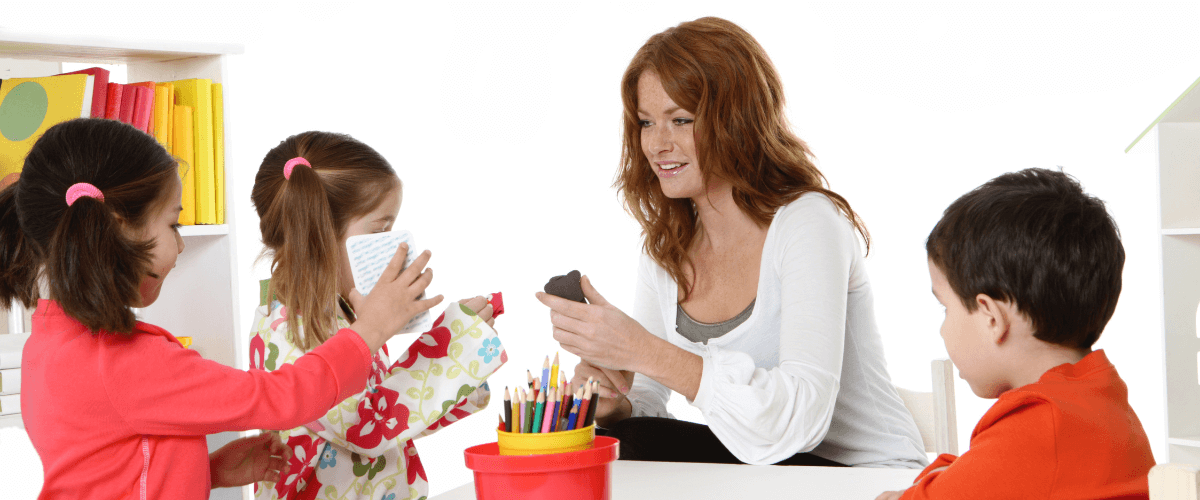
As parents, we all aspire to raise well-rounded children who are not only academically proficient but also emotionally intelligent. Emotional intelligence (EI) is the ability to understand, use, and manage our emotions in positive ways. It’s about recognizing our emotions, understanding what they’re telling us, and realizing how our emotions affect others. In this blog, we’ll explore the importance of EI, how it benefits children and practical ways of teaching emotional intelligence in early childhood.
What is Emotional Intelligence?
Emotional Intelligence is a set of skills that children can develop with guidance and practice. These skills include:
- Self-awareness: Recognizing and understanding one’s own emotions.
- Self-regulation: Managing strong emotions and impulses.
- Social skills: Building healthy, positive relationships.
- Empathy: Understanding and sharing the feelings of others.
- Motivation: Being driven to fulfill personal goals.
Importance of Emotional Intelligence in Children
Developing EI is crucial for children as it lays the foundation for:
- Better academic performance: Children with high EI are more focused and can handle stress better.
- Improved communication skills: EI helps children articulate their feelings and understand others’ emotions.
- Stronger relationships: EI leads to better conflict resolution and relationship management.
- Greater self-awareness: It helps children understand their strengths and weaknesses.
- Resilience: EI teaches children to bounce back from setbacks.
How to Develop Emotional Intelligence?
- Be a Role Model
Children learn by observing. Displaying emotional intelligence in your interactions teaches them to do the same. Show empathy, handle conflicts calmly, and express your emotions healthily.
- Talk About Emotions
Discuss emotions openly. Name and validate your child’s feelings, and encourage them to talk about what they’re experiencing. This helps them identify and understand different emotions.
- Listen Actively
Listen to your child’s concerns without judgment. This shows that their feelings are valid and important, building trust and openness.
- Problem-Solving Together
Work with your child to solve problems, especially those involving emotional conflicts. Guide them in understanding different perspectives and finding constructive solutions.
- Encourage Empathy
Foster empathy by discussing how others might feel in different situations. This can be done through stories, role-playing, or real-life scenarios.
Emotional Intelligence Activities for Kids
Emotion Charades: A game where children act out different emotions and others guess what they are. This helps in recognizing and understanding emotions in others.
Storytelling with Emotions: Read stories and discuss the emotions of characters. Ask your child how they would feel in similar situations.
Emotion Art: Let your child draw or paint their emotions. This is a great way for them to express feelings they might not have words for.
Emotion Journals: Older children can benefit from keeping an emotion journal, writing down their feelings and why they might be feeling that way.
Role-Playing: Act out various scenarios with your child, focusing on expressing and managing emotions appropriately.
How Parents Can Foster Emotional Intelligence at Home
Consistent Emotional Support: Be available and responsive to your child’s emotional needs. Consistency in this creates a secure emotional environment.
Set Boundaries: Clear boundaries, coupled with emotional understanding, help children feel safe and respected.
Positive Reinforcement: Praise your child not just for achievements but for showing empathy, patience, and other emotional intelligence traits.
Teach Coping Skills: Guide your child in developing healthy ways to deal with negative emotions, such as deep breathing or taking a break.
Family Time: Engage in activities that promote bonding and open communication. Family dinners, game nights, and outings are great opportunities.
Conclusion
Teaching emotional intelligence in early childhood sets the foundation for a fulfilling, empathetic life. As parents, your role is pivotal in this journey. Remember, it’s a gradual process filled with learning opportunities for both you and your child development. Encourage open dialogue, be a role model, and, above all, provide a nurturing environment where emotions are respected and valued. Organize fun emotional intelligence activities for your kids to give them a joyful learning environment. Your efforts today are an investment in your child’s emotional well-being for a lifetime.
